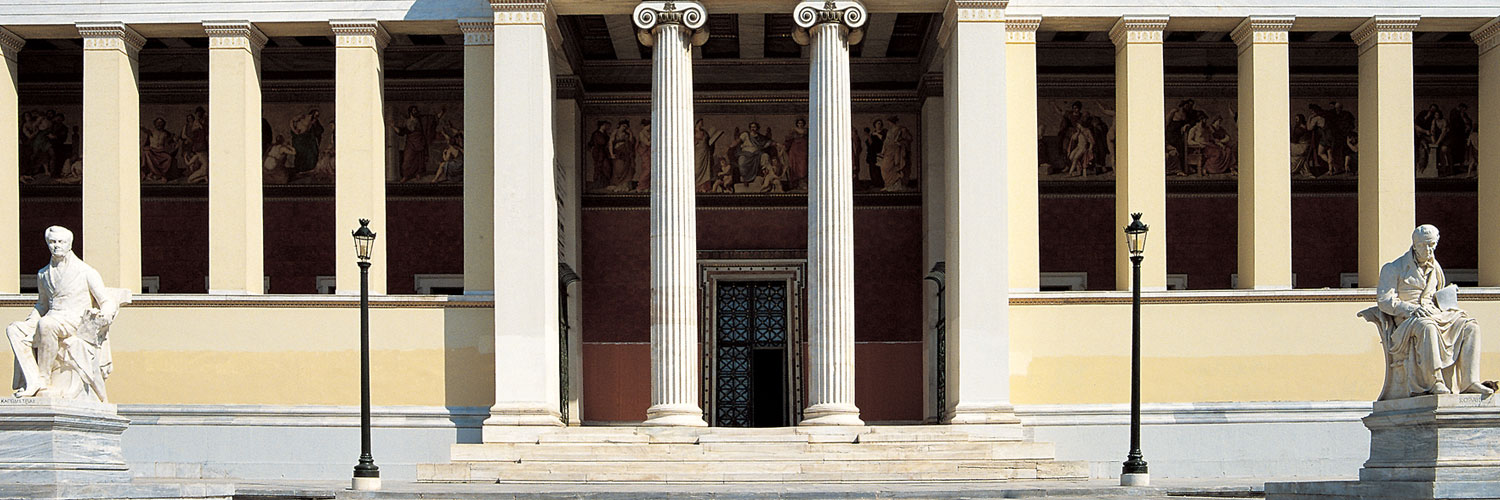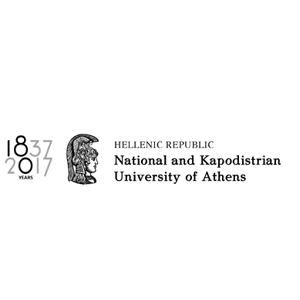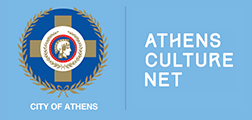

The National and Kapodistrian University of Athens (NKUA), the University with the widest presence and authority in the country, has established its own tradition of science and creative participation in Greek society.
It is the oldest University in the country, founded by the Royal Decree of 22 April 1837 under the name “University of Otto”. After a further decree of October 20 1862 issued by the ‘Interim Government’ (October 10-November 27, 1862) that name has changed to: “National University”. Initially it was composed of four (4) Faculties with a total of 52 students. As it was the first university in the newly established modern Greek state, as well as in the Balkans and the Eastern Mediterranean region, its role has been decisive, in historical and social respect, for the production of special knowledge and the promotion of cultural life in the country.
In 1841 administrative and educational facilities were transferred to the edifice currently and widely known as the “main building” of the University of Athens, the middle part of the famous “neoclassical trilogy” in the center of Athens. In accordance with the will of the important donor Ioannis Dombolis (dating from 4 February1849) and to implement that donation, a law was issued on July 17, 1911 with which the ‘Kapodistrian University’ was founded: the latter was composed of the theoretical Faculties of the ‘National University’ and was placed under common administration with the latter, sharing Senate and Rector with it. Since 1932 the “National University” and the “Kapodistrian University” were also formally united (Article 1 of Law 5343/1932): the final result was the “National and Kapodistrian University of Athens”, a fully self-governed legal person of public law.
Up to the early 20th century the NKUA was the only University which provided Greek society with scientists receiving diplomas in medical, natural and social sciences, Law and Economy , Theology, Literature, History, Archaeology. Thus the staff needs of the country regarding administrative personnel, education and clergy have been competently served. In its many years of operation, the University of Athens has offered the country a centre of intellectual production, stimulating various relevant circles functioning inside and outside its premises.
Nowadays it still offers important social services, producing academic and scientific personnel, in addition to the exercise of closer scientific tasks: through its members, it often participates in national and international committees, it carries out educational and other research projects, organizes and participates in seminars for various social groups (often alongside with its members’ full employment at the University). One of the most important contributions of the University of Athens concerns the area of national health, also because students of health sciences perform their first practice period offering their medical services to the public under the supervision of professors.
There are now eight schools operating at the NKUA: 1) School of Theology, 2) the Law School, 3) The School of Economics and Political Sciences, 4) the School of Education, 5) The School of Natural Sciences, 6) the School of Physical Education and Sport Science, 7) The School of Health Sciences and 8) The School of Philosophy
Within these eight faculties/schools of the University are allocated thirty three academic departments. Each academic department offers and implements an undergraduate study program.
The NKUA includes in his strategic options the role of an institution actively interested in co-shaping the development of European and international education and culture. It tries to contribute positively to the processes at decision-making centers where the issues of higher education are regulated. At the same time it takes care for making widely known the high-quality of the educational and cultural work produced under its auspices.
The achievement of its corresponding objectives is pursued through:
• The activity in the European educational program Erasmus
• the participation in further European scientific cooperation and mobility programs
• the conclusion of international bilateral scientific cooperation agreements with other High Educational Institutions and the participation in international independent programs.
• the participation in various international organizations, associations and university networks
• The development of international joint master and doctoral programs and the co-supervision of doctoral theses.

